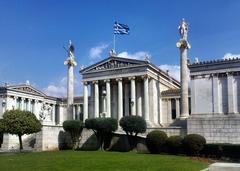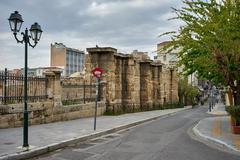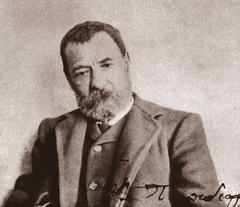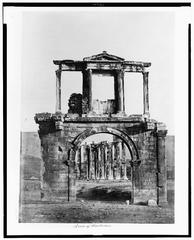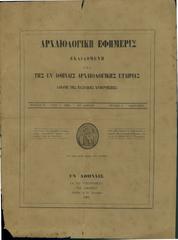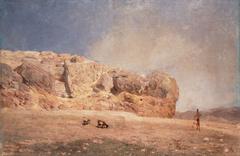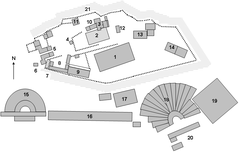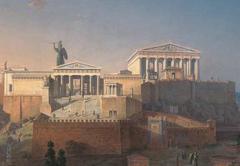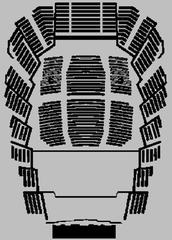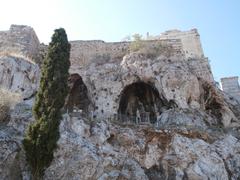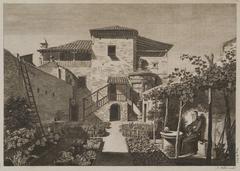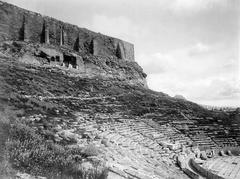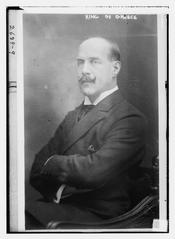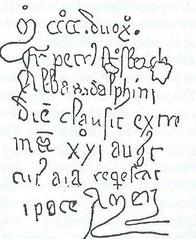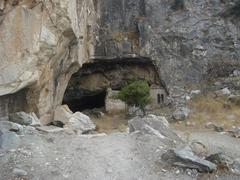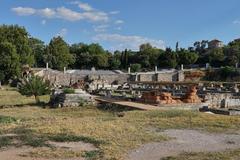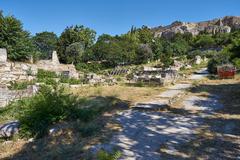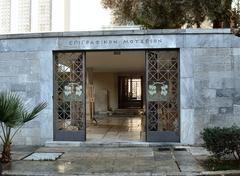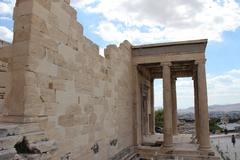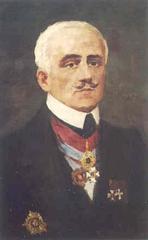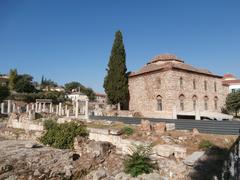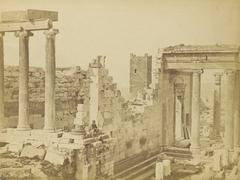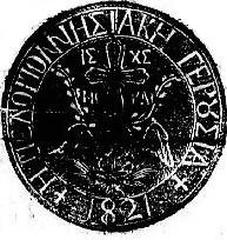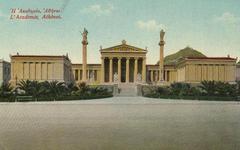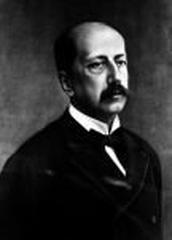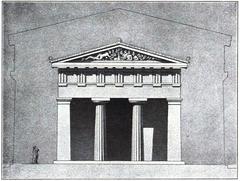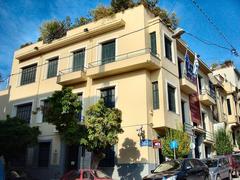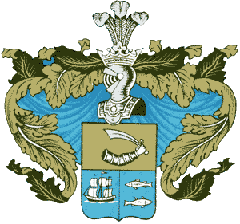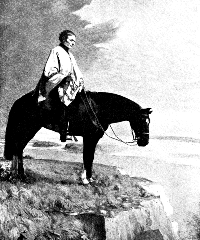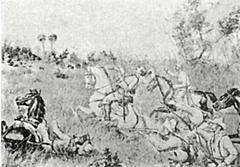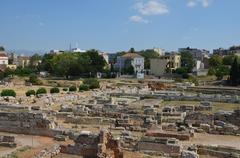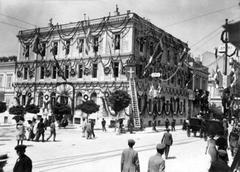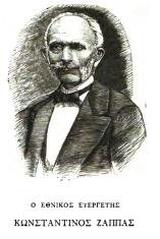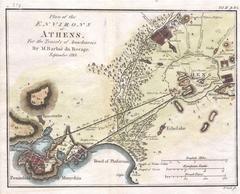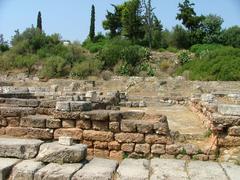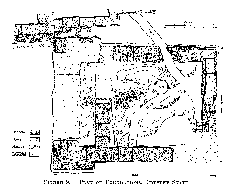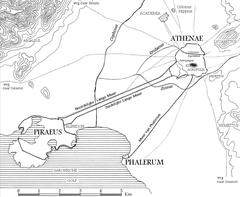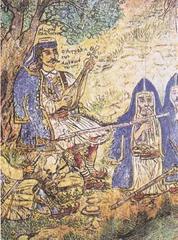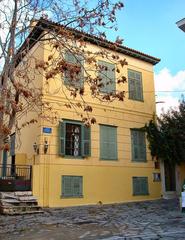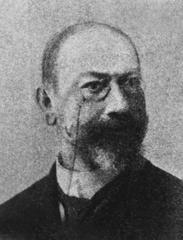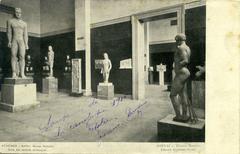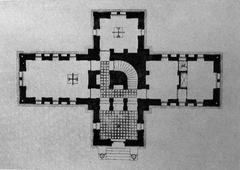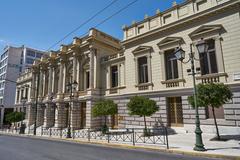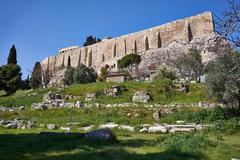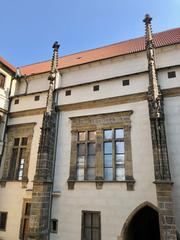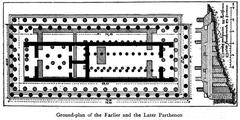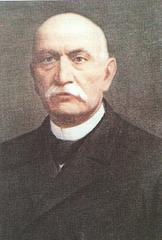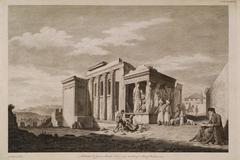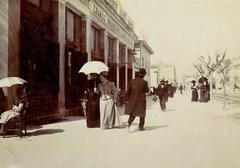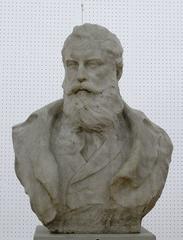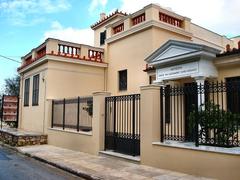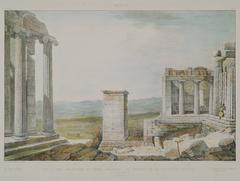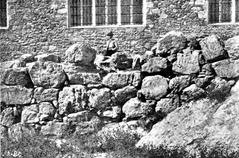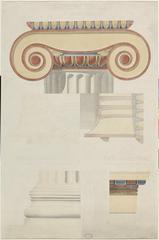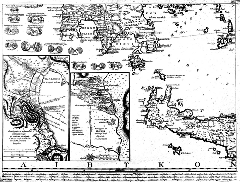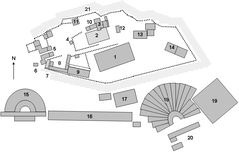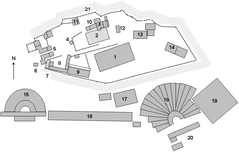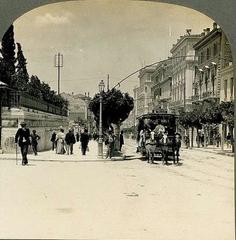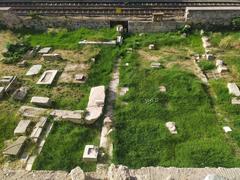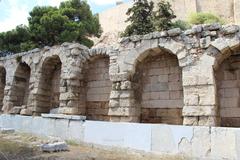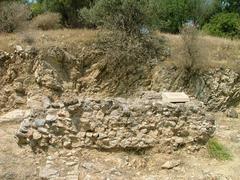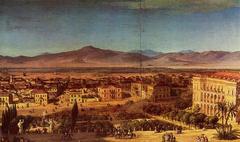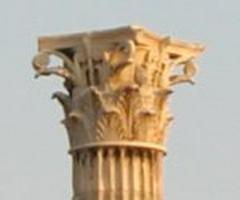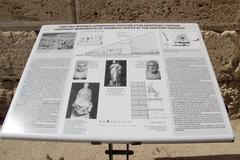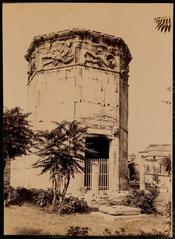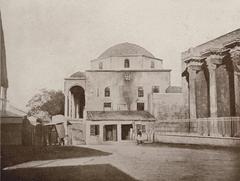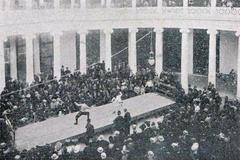
Heroum of Musaeus: Visiting Hours, Tickets, and Historical Sites in Athens
Date: 03/07/2025
Introduction
The Heroum of Musaeus, nestled within the scenic heights of Mouseion (Philopappos) Hill southwest of the Acropolis, offers visitors a unique window into ancient Greek mythology, religious rituals, and artistic heritage. While the physical remains of this hero shrine are subtle, the landscape itself is steeped in the cultural memory of Musaeus—a legendary poet, seer, and priest associated with the Eleusinian Mysteries and the cult of the Muses. For history enthusiasts and cultural travelers, the site provides a tranquil yet profound connection to Athens’ mythic, artistic, and spiritual traditions.
This guide presents everything you need for an enriching visit: historical context, visitor information (including location, hours, and accessibility), practical tips, and nearby attractions. Whether you’re seeking panoramic views, mythological lore, or a peaceful retreat from the city, the Heroum of Musaeus is both a destination and a journey into Athens’ ancient soul. Enhance your experience with resources like guided walking tours and audio apps such as Audiala (Athens by Locals; This is Athens; Acropolis Museum).
Table of Contents
- Historical Background of Musaeus
- Cultural and Mythological Significance
- The Site: Location and How to Visit
- Visiting Hours, Tickets, and Accessibility
- What to See: Sanctuary Remains and Nearby Monuments
- Practical Visitor Tips
- Nearby Attractions
- Guided Tours and Events
- Frequently Asked Questions (FAQ)
- Conclusion and Further Resources
Historical Background of Musaeus
Musaeus (Μουσαῖος, Mousaios) is a semi-mythical figure in ancient Greek tradition, celebrated as one of the earliest poets, seers, and religious leaders of Athens. Closely linked to the Eleusinian Mysteries—secretive rites honoring Demeter and Persephone—he is sometimes described as a disciple or son of Orpheus or of Eumolpus, and is credited with composing mystical hymns and oracular poetry. Musaeus’s influence on Attic priestly poetry and oracular tradition left a deep imprint on Athenian culture (Wikipedia; Mythotopia).
According to ancient sources, Musaeus was buried on Mouseion Hill, which became a place of veneration and inspiration for poets, musicians, and philosophers (Wiki Gateway). The site’s mythic aura endures in the landscape, even as the original sanctuary has faded from view.
Cultural and Mythological Significance
Eleusinian Mysteries and Religious Role
Musaeus is closely connected with the Eleusinian Mysteries, the most important religious rites of ancient Greece. He is credited with introducing these mysteries to Attica and is said to have composed hymns and oracular responses integral to the ceremonies (Mythotopia). As a hierophant and spiritual founder, Musaeus’s verses were believed to hold purificatory and protective power (Wiki Gateway).
Artistic Inspiration and the Cult of the Muses
Musaeus’s very name is linked to the Muses, the goddesses of music, poetry, and the arts. He is often regarded as the founder of their cult, serving as a symbol of creative inspiration in Athens. The Heroum thus became a spiritual and artistic pilgrimage site, where devotees sought divine favor for their artistic pursuits (Athens Greece Now). Ancient writers such as Plato and Euripides reference Musaeus as a sage of profound wisdom and influence (Wiki Gateway).
Hero Cult and Civic Identity
As a hero shrine, the Heroum of Musaeus functioned as a place of ritual veneration, where libations and hymns were offered for guidance, inspiration, and healing. The cult of Musaeus, intertwined with the Muses and Eleusinian Mysteries, reinforced Athenian identity and civic pride, celebrating the city’s traditions of knowledge, artistic excellence, and spiritual enlightenment (Life123).
The Site: Location and How to Visit
The Heroum is situated on Mouseion (Philopappos) Hill, southwest of the Acropolis. The hill is easily accessible by foot from Athens’ center and offers sweeping views of the city and Acropolis. The exact location of the Heroum is not marked by substantial ruins, but subtle rock-cut chambers and remnants can be discerned in the landscape.
Address: Mouseion Hill, Athens 117 41, Greece
Nearest Metro Stations: Acropolis (Line 2) or Thissio (Line 1)
Walking Route: Dionysiou Areopagitou Street provides a scenic approach.
Visiting Hours, Tickets, and Accessibility
- Opening Hours: Mouseion Hill is open daily from dawn to dusk. There is no formal gate or ticketing for the Heroum itself, as it is part of a public park and archaeological zone.
- Entry Fee: Free for all visitors; no ticket required for the Heroum or the hill.
- Accessibility: Paths are mostly paved, but the terrain is uneven and includes slopes and cobblestones. Visitors with limited mobility should note the lack of specialized facilities (Sage Traveling; Accessible Routes Athens).
For those wishing to combine their visit with the Acropolis or adjacent archaeological sites, standard Acropolis tickets apply (Acropolis Athens Tickets).
What to See: Sanctuary Remains and Nearby Monuments
The Heroum Remains
The site itself is understated, with rock-cut chambers and ancient masonry blending into the hill’s landscape. While signage is minimal, the area’s mythic associations are palpable, and visitors often find the quiet atmosphere conducive to reflection (PocketSights).
Philopappos Monument
Nearby, the Philopappos Monument crowns the summit of the hill, commemorating the Roman consul Philopappos. Its marble reliefs and inscriptions are significant landmarks and provide a dramatic backdrop to the Heroum (Athens by Locals; This is Athens).
Other Highlights
- Prison of Socrates: A rock-cut chamber traditionally linked to the philosopher.
- Tombs of Kimon (Kimoneia): Said to be the resting place of the Athenian general.
- Koili Odos: Ancient boulevard connecting the site to the city.
Practical Visitor Tips
- Footwear: Wear sturdy, comfortable shoes suitable for uneven paths (Global Highlights).
- Essentials: Bring water, sunscreen, and a hat, as shade is limited.
- Best Time to Visit: Early morning or late afternoon for cooler temperatures and soft light—ideal for photography (Medium).
- Local Customs: The hill is a popular picnic and kite-flying spot for locals on ‘Clean Monday’ and other festive days.
- Dining: Nearby neighborhoods like Thissio and Koukaki offer excellent dining options (Discover Greece).
Nearby Attractions
- Acropolis and Parthenon: Iconic ancient citadel within short walking distance.
- Acropolis Museum: World-class exhibits; accessible facilities.
- Theatre of Dionysus: Historic birthplace of Greek drama.
- Odeon of Herodes Atticus: Roman theater still hosting performances.
- Plaka District: A lively neighborhood for shopping and dining.
Guided Tours and Events
Several walking tours of Philopappos Hill and the Acropolis area include the Heroum of Musaeus, providing expert insight into its history and significance. Some offer audio guides or digital experiences for deeper engagement (Acropolis Athens Tickets).
Occasional cultural events and performances may be held nearby, especially during Athens’ festival seasons.
Frequently Asked Questions (FAQ)
Q: Is there an entrance fee or ticket for the Heroum of Musaeus?
A: No, the Heroum and Philopappos Hill are free to visit.
Q: What are the visiting hours?
A: The hill is open daily from dawn until dusk.
Q: Are guided tours available?
A: Yes, some walking tours include the Heroum as part of Philopappos Hill’s historical sites.
Q: Is the site accessible for people with disabilities?
A: Some paths are paved, but terrain can be uneven; accessibility is limited.
Q: Can I combine my visit with other Athens historical sites?
A: Absolutely. The Acropolis, Ancient Agora, and other major sites are nearby.
Conclusion and Call to Action
The Heroum of Musaeus is a hidden yet evocative gem in Athens’ rich archaeological landscape—a place where myth, art, and history converge. While modest in physical remains, its cultural resonance endures, offering visitors a peaceful retreat and a meaningful connection to ancient traditions. To make the most of your visit, plan your route, wear appropriate footwear, and consider joining a guided tour or using an audio guide for deeper context.
For up-to-date travel advice, immersive audio tours, and exclusive content about Athens’ historical sites, download the Audiala app. Follow us on social media for more travel tips, event updates, and inspiration as you continue your exploration of Athens’ timeless wonders.
References and Further Reading
- Official Athens Tourism Website
- Acropolis Museum
- Philopappos Monument Information
- Pantheon.org Musaeus Article
- Hellenica World Musaeus Profile
- Mythotopia Musaeus Entry
- Athens Greece Now: Musaeus the Poet
- Athens by Locals Guide to Philopappos Hill
- Acropolis Athens Tickets
- Sage Traveling Athens Accessibility
- Discover Greece: Athens Traveler Info
- Accessible Routes Athens

